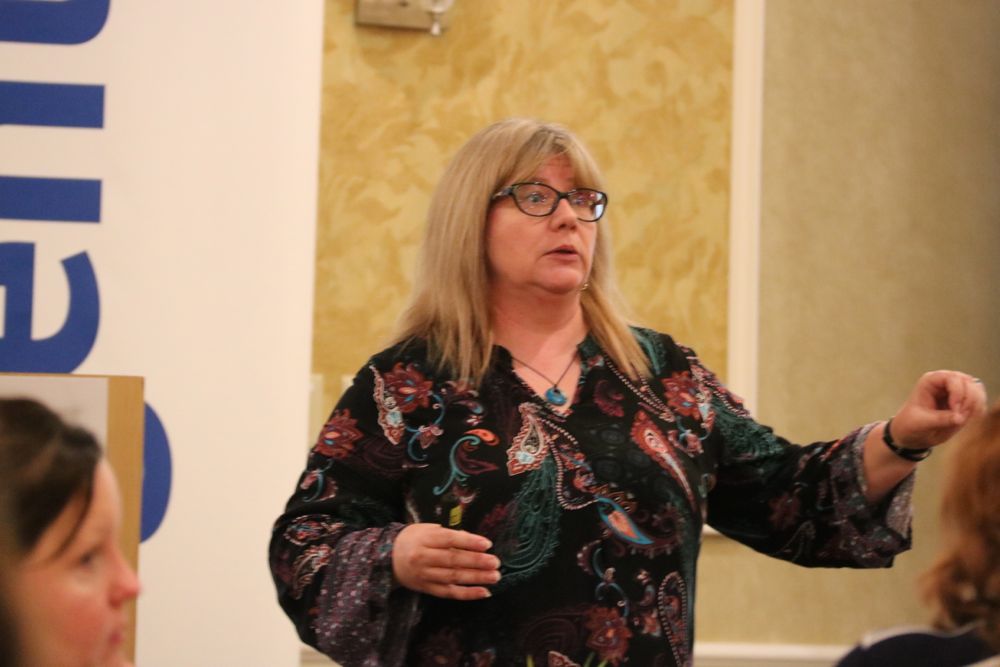Think of your mental health on a scale of one to five. Evaluating how you’re doing over time on a simple scale can provide a measure of mental health.
Using such a scale can be helpful when you’re figuring out if a person you know needs some mental health help, said Suzanne Simpson of the Canadian Mental Health Association of Huron and Perth counties.
Why it matters: Farmers have been shown to have more mental health challenges, such as depression and suicide, than the general population. Understanding ways to talk about and evaluate mental health is key to improving those numbers, says agriculture mental health experts.
Read Also

Canada seventh-most influential country on agri-food
Report from Dalhousie University and MNP shows Canada ranks seventh among G20 countries on agri-food influence.
Simpson said at a recent Whole Farm Health event put on by the Ag Women’s Network that while there is no hard and fast rule for when someone is in mental health crisis, like taking a temperature when someone is physically ill, there are key indicators that help show when someone needs help.
She defines mental illness as an absence of well-being over time. We all have bad days, but mental health issues manifest themselves over time — and the changes are significant.
If someone you know is exhibiting these conditions, then they may need help, she says:
- Significant, marketed change in personality over a period of time
- Significant changes in eating and sleep patterns
- Weight gain
- Withdrawal from friends, family or coworkers
- Growing use of medications, alcohol or drugs
- Talk of harming oneself or of suicide, especially evidence that there has been planning about how it could happen
“If someone is sliding down the scale, and they don’t do anything to get back up it, they won’t get back up the scale,” Simpson said to women and men from farms and the agriculture industry at the event in Stratford.
“Most people know what they need. You know you best. But they need someone to talk it out and get them there,” she said.
The challenge for most people is how to help, or what approach to take with someone you suspect is struggling with their mental health. There’s stigma. There’s the worry that you’re not reading the person right.
Just say something, Simpson said.
“Yes, you might offend or hurt feelings, or they might be mad at you, but saying nothing is worse. Talk to them and you are giving them hope. We all need hope.”
You may not be able to fix it in a day, a week, an hour a year, but say something, said Simpson.
It took the insistence of Joanna Wallace’s mother and husband to get her to see her doctor about post-partum depression after the birth of her twins. She said she didn’t know how to get the care she needed.
“I still manage anxiety and depression and with support and self-care, I can manage it,” the farmer and agronomic sales representative with Syngenta said at the meeting.
There are numerous agencies where farm families can access mental health services. They are starting to work together more, said Simpson.
For example, the Huron Perth Addiction and Mental Health Alliance was formed to avoid duplication and get people to the services they need quicker.
The phone lines run by health units and other agencies across the province mostly now call themselves ‘help lines’ versus ‘crisis lines,’ as most people who need help don’t see themselves in ‘crisis.’
The Canadian Mental Health Association helps people access the services they need in their communities. Dialing 211 provides access to someone who can help with accessing community services in Ontario.
If you don’t get the answer you need, hang up and try again, said Simpson. Not every person on the other end of the phone line will give you the same answer.
Taking the first step can be the biggest challenge in dealing with a mental health illness, but it’s the start of a journey that will then require maintenance and self-care over time, said Simpson.
“Make sure you regenerate and take care of you,” or a mental health illness can become chronic, she said.















